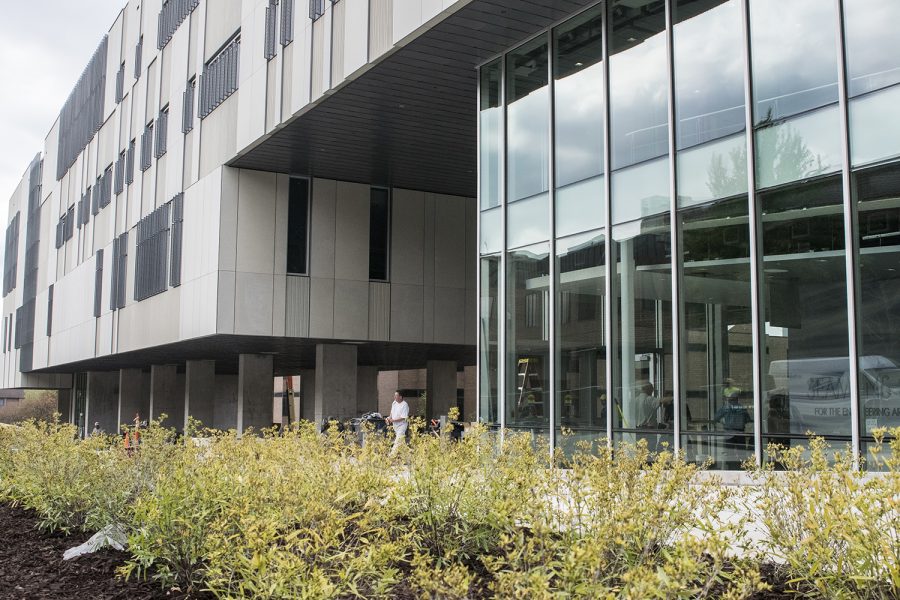UI Urban & Regional Planning School teams up with College of Engineering on new degree
A new interdisciplinary master’s degree in engineering and urban & regional planning will allow students to complete coursework on a faster track.
March 24, 2019
University of Iowa graduate students may now pursue a combined degree in the College of Engineering and the School of Urban & Regional Planning.
The degree will offer a master of science in civil and environmental engineering with a subprogram of sustainable-water development and a master of science in urban and regional planning.
On the Urban & Regional Planning website, students are required to complete 65 semester hours, as opposed to the previous 81. The coursework can be completed in five semesters.
Professor Charles Connerly, the director of the Urban and Regional Planning School, said the original idea for the degree came from the Civil & Environmental Engineering Department, which had received significant federal funding for a master’s and a Ph.D. in sustainable-water development.
RELATED: Engineer Your World takes aim at STEM involvement
“For us in urban planning, a lot of our coursework focuses on sustainability,” Connerly said. “In fact, we are now classified under the U.S. Department of Education as being a sustainability science.”
Connerly said he saw a natural complement between the two degrees.
“The [water] degree is for people who come out of STEM fields,” Connerly said. “Some of our students come out of sciences. However, this provides a sort of encouragement for people to come into our program out of the sciences and, in particular, people who want to specialize in environmental planning, which is one of our concentrations.”
The degree allows students to receive the background in the planning program, he said, and also the specialization in sustainability and water.
“The planning degree is a two-year degree,” Connerly said. “The [water] curriculum is 12 months. If we didn’t have a joint degree, it would take around three years to complete the coursework. There is a little bit of savings with this degree completing in two and a half years.”
Blake Rupe, the sustainable-water development program coordinator in the College of Engineering, said a value of the UI in graduate research is expanding work in the field of water research.
“We try to expand a lot of our collaborations, not just to include engineering folks but also people who work in fields of water sustainability in much different careers,” she said. “That is why we see urban and regional planning as being perfect to work in water.”
Water is an important point of contact and is a joint effort between planning and engineering, Rupe said.
“If we can educate professionals who can address water problems engineering wise and with planning knowledge, I think you can start creating a workforce that can provide clean water and mitigate flooding issues that occur,” she said.
There are other combined degrees in the engineering school as well, Rupe said, some focusing on the undergraduate to graduate student track.
UI alum Parker Just graduated with a bachelor of science and engineering and graduated later with a master’s in regional planning through a similar dual-degree program.
“The stereotypical thought is that engineering is more by the book, but my degree in planning helped me see that there is more to it than just the engineering side of things,” Just said. “In my job, I work with clients, but I also work with communities. It ultimately helps me see that there is more to the job than, ‘Hey, we’re building a road’ — it’s the kind of benefit that the project has for the people around.”















